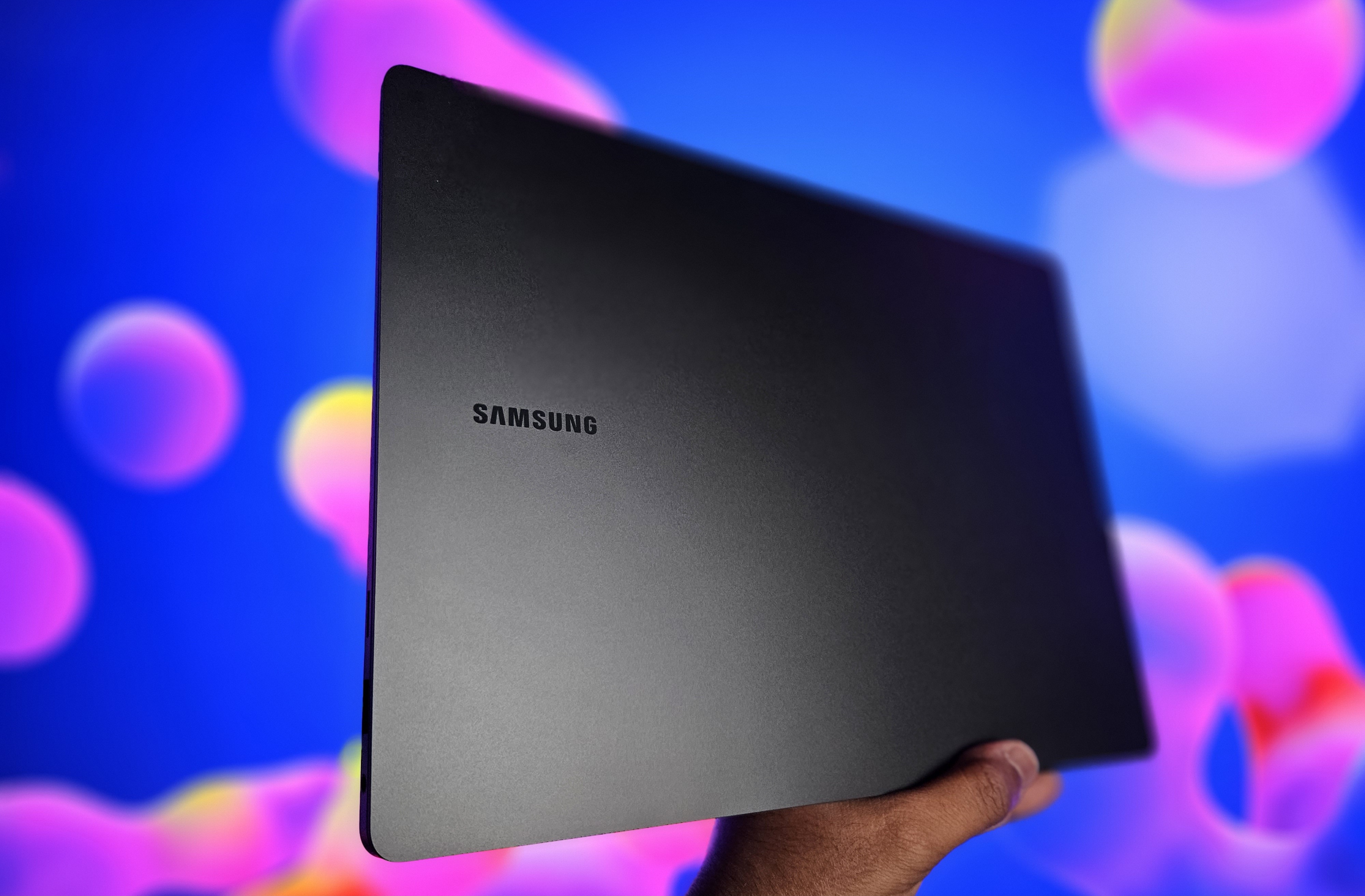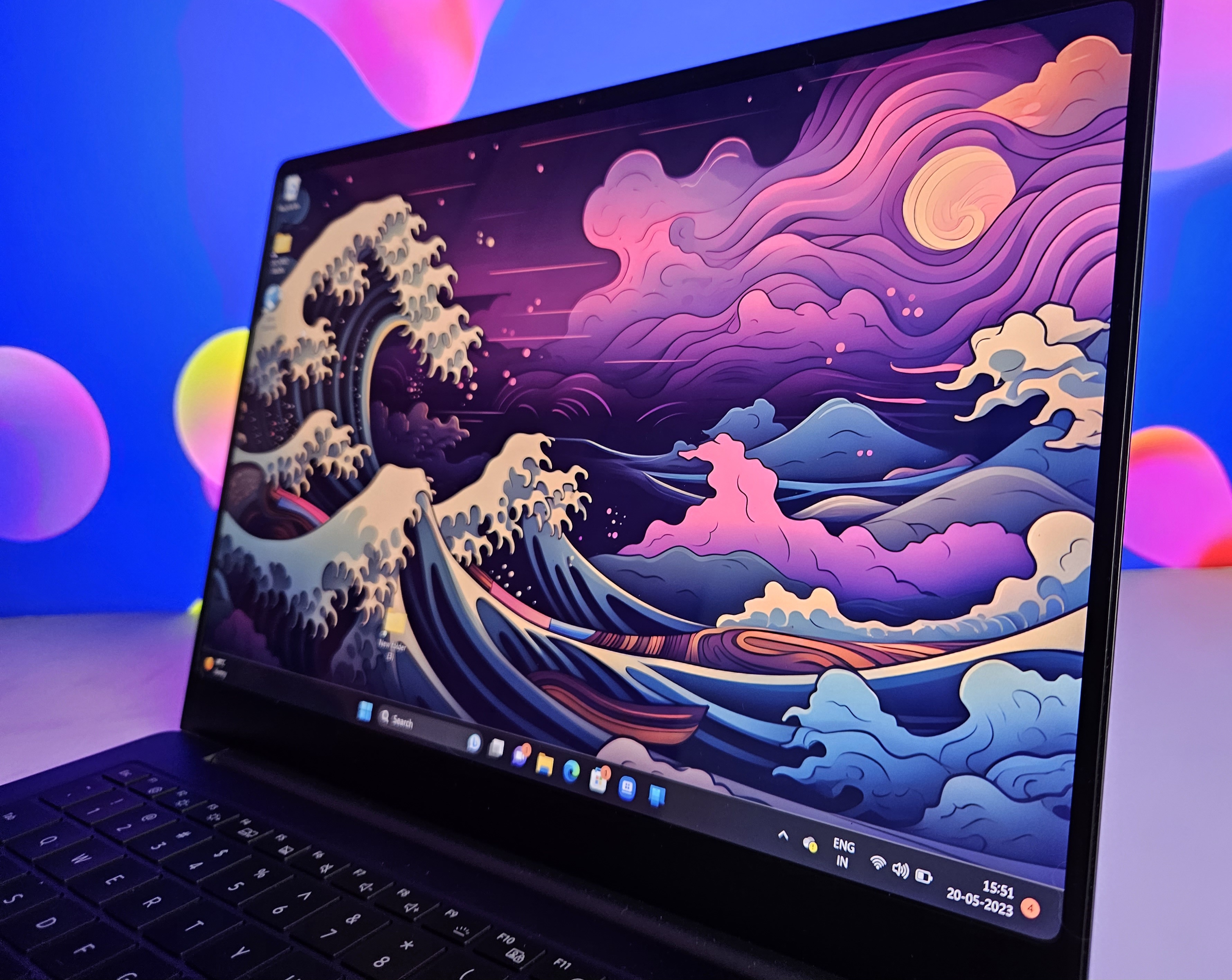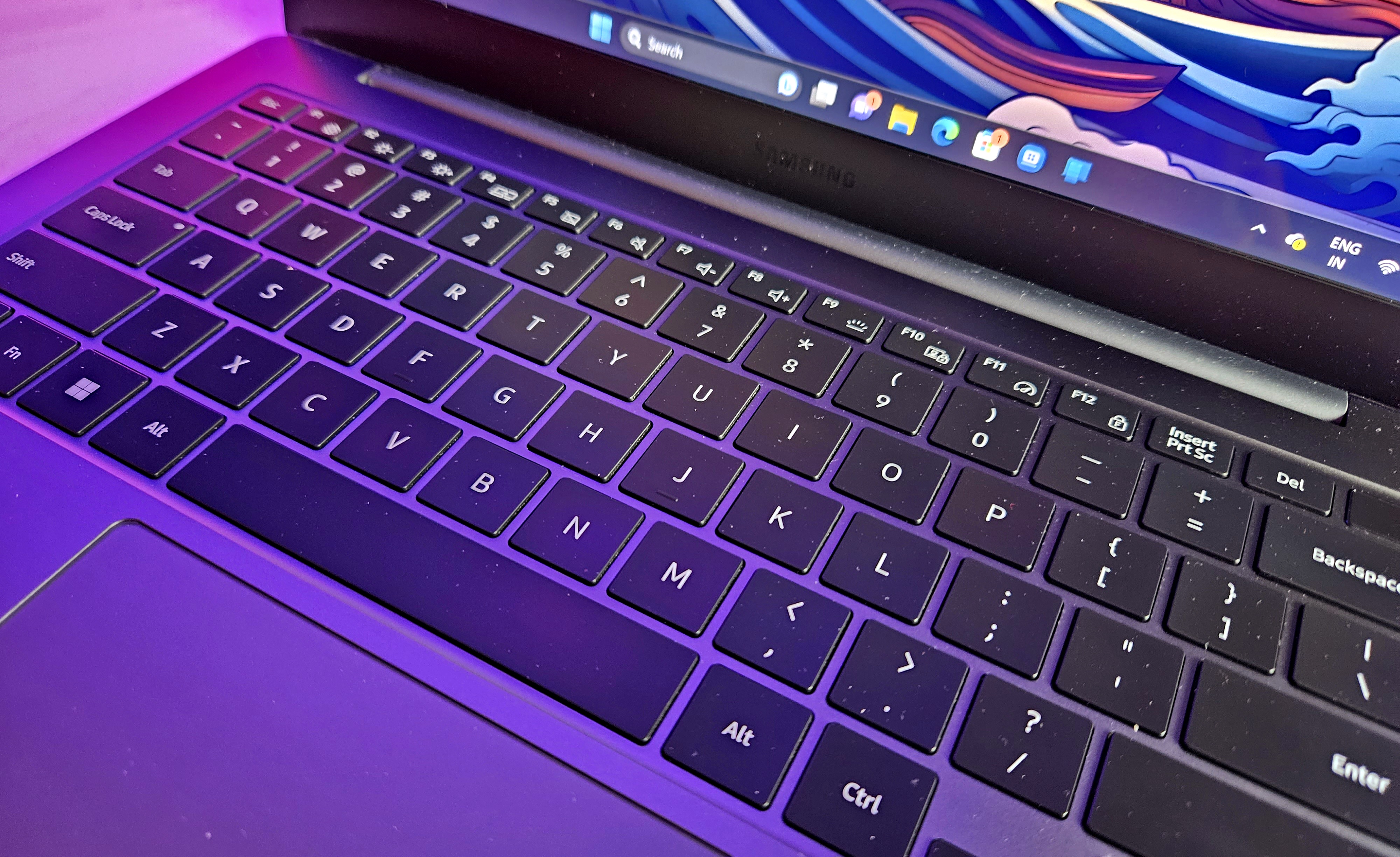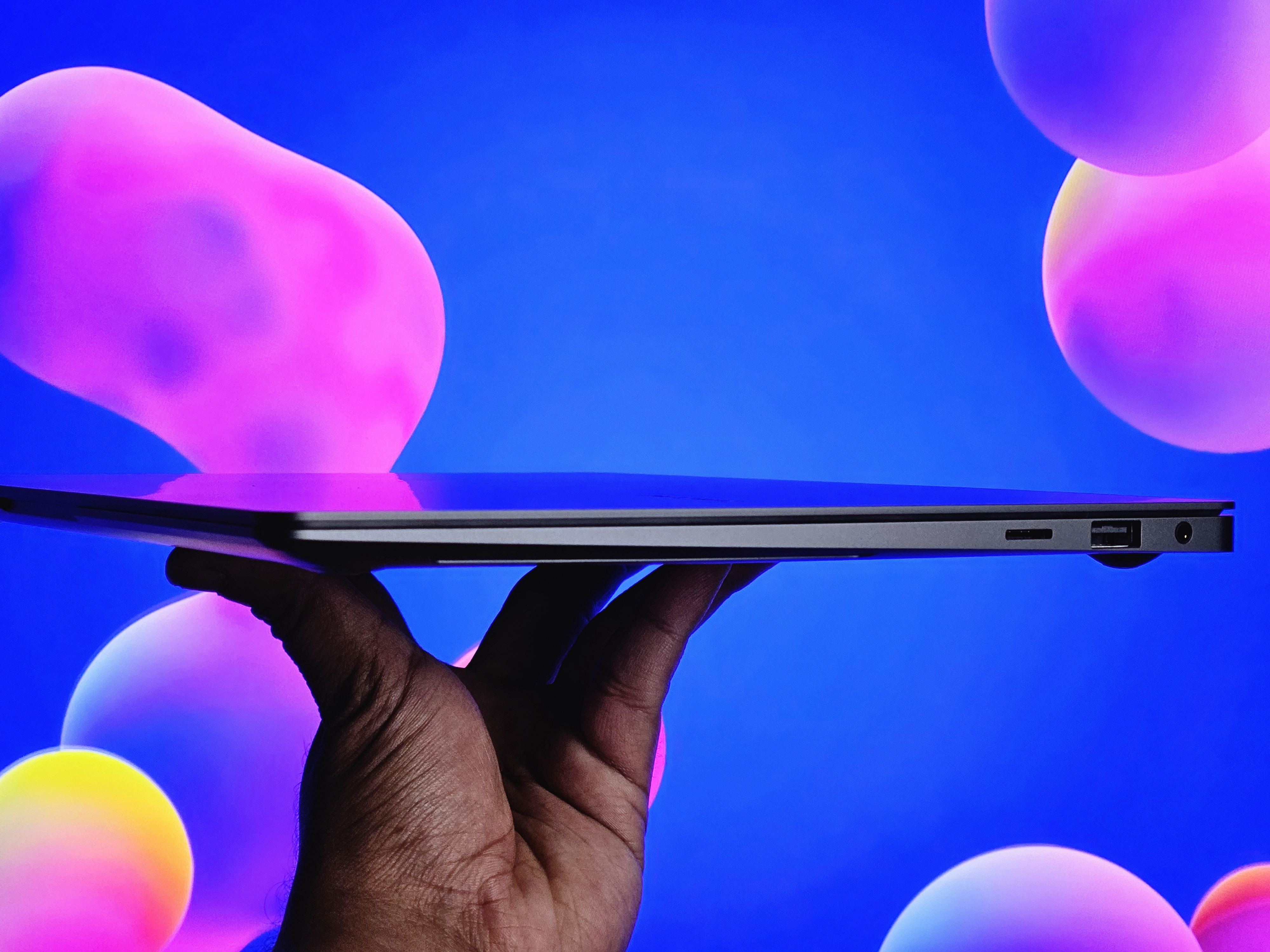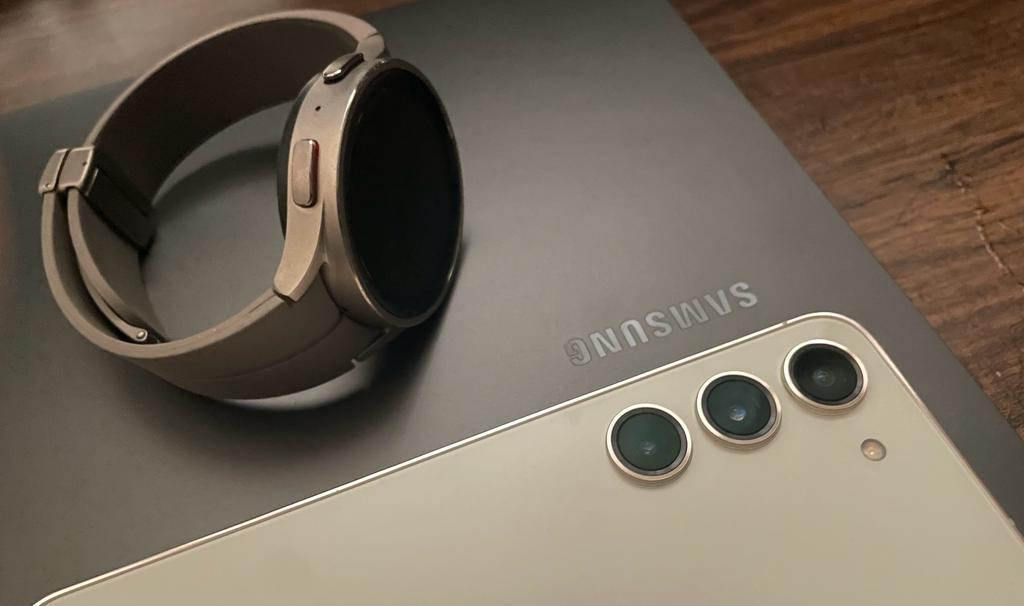Samsung Galaxy Book 3 Pro Review: The ‘MacBook’ Of Windows Laptops
Samsung Galaxy Book 3 Pro Review: When it comes to Windows laptops—and especially thin and light laptops—designed to do everyday work while being light, portable, and powerful, there are very few options. Most don’t have particularly good battery life, and some are just not powerful enough to handle the daily strenuous tasks users throw at them.
With the Galaxy Book 3 Pro, Samsung sought to do just that—and in a way, it has accomplished most of it. The laptop screams premium, is super lightweight, comes with powerful internals, and battery life isn’t an achilles heel. This is our full review of the Samsung Galaxy Book 3 Pro.
Our unit has a 13th Gen Intel Core i7-1360P, clocked at 2.20 GHz and comes with 16GB RAM. It sure is expensive, with a sticker price of Rs 1,55,990, but promises a premium Windows experience that only a few others can match. Read on to find out if the latest Galaxy Book 3 Pro is worth your money.
Display: AMOLED Goodness, All Day, Everyday!
Before going into the review period of the Galaxy Book 3 Pro, I was testing the ASUS ROG M16, which had a 16-inch mini LED panel, but once I moved to the Galaxy Book 3 Pro, I could immediately notice how good Samsung’s 14-inch panel was—with its inky deep blacks, accurate color reproduction, all while being super sharp with a 3K (2880 x 1800) resolution. Like the past couple of generations of MacBook Pro’s, the Galaxy Book 3 Pro offers a 120 Hz refresh rate, and boy, it is smooth.
Browsing the web, watching YouTube and OTT on the 14-inch AMOLED panel is a joy. And, with OLED panels infamous for burn-in, I tested the panel for signs of burn-in and even kept an idle image for almost 12 hours at a stretch overnight for multiple days, but I’m happy to say that the display has shown no signs of burn-in yet. Also, you won’t have any issues working on the laptop in broad sunlight—let’s say while sitting in a café—because it’s plenty bright.
The display also supports 120% of the DCI-P3 color gamut, so editing photos on Photoshop or reviewing files is going to be a stellar experience.
Speaking of Photoshop, let’s talk about performance.
Performance: Don’t Keep High Expectations, But It Is Surprisingly Capable
As mentioned earlier, our unit has the 13th Gen Intel Core i7-1360P processor, but you may also choose the cheaper Core i5 model, but that would not be as powerful. On paper, being a P series processor, you’d think the Galaxy Book 3 Pro wouldn’t be able to do much at all, but that is not true. And, while it is no performance champ—being able to play the latest AAA titles or handling multiple layers of 4K LOG footage in Adobe Premiere Pro, the Galaxy Book 3 Pro holds its own in apps like Photoshop, Lightroom, and basic editing on DaVinci Resolve 18. I tested all the above-mentioned apps, and thanks to 16GB DDR5 memory, the laptop handles everything well and barely skips a beat until after an hour or so. I did notice that it got uncomfortably hot after a while—when it was in the high-performance mode—but being a metal chassis, it is expected, and does cool down. After an hour of intense work, you can expect it to throttle—bringing the performance down.
Also, just for the fun of it, I did install Xbox GamePass and installed Death’s Door on it. You can get a perfectly playable experience if you drop the resolution down to 1080P. So, you can expect it to power through most indie games which don’t require much horsepower.
But, if I were you, I wouldn’t buy the Galaxy Book 3 Pro for its performance, I’d buy it for the balance it offers between portability, power, and good aesthetics.
Design and Keyboard: Great Build, Better Keyboard
Let me start with the build quality first, and here, it’s safe to say it rivals the very best, including the MacBooks. With an all-metal chassis, a large glass trackpad, a well-designed hinge, and being lightweight, the Galaxy Book 3 Pro screams premium.
In all fairness, the design and the form factor are why anyone should consider buying this laptop in the first place. Not only does it look minimal, and just the right amount of professional for a business setting, but the laptop also is quite comfortable to travel with—weighing in at just 1.17KG (14-inch variant). Yes, it’s quite reminiscent of the MacBooks, but that’s okay, and I’m happy that Samsung went that route.
Now, as far as the keyboard goes, I’m equally impressed. Not only is it satisfying to type on, but as I type this review on the very same keyboard, I can notice that it has barely worn out. Trust me, I type a lot, and my MacBook Air M1 had already started wearing out within a month of use—with a shiny glow replacing the matte texture of the keys. But with the Galaxy Book 3 Pro, I’m yet to see it. It has already been more than a month of use, and it still looks as good as new.
I’m also typing fairly comfortably on it, but I do have a minor gripe with it. While typing, the edges on the chassis may hurt your wrist after long hours of typing, but that’s not because of the keyboard, it’s the sharp edges of the bottom chassis. I wish Samsung curves it a little in future releases.
For I/O, the Galaxy Book 3 Pro comes with a modest selection of ports—one full-size HDMI, one microSD card slot, a USB 3.2 Type-A port, and a couple of USB-C ports with Thunderbolt 4. I would have preferred an SD card port instead of a microSD port, but I’ll take it.
Battery Life and Charging: Okay, Not Great
Compared to most ultrathin Windows laptops, the Galaxy Book 3 is a huge improvement but a far cry from Samsung’s claimed numbers. The 63Wh battery will last you around 3-4.5 hours on 50% brightness—while doing light tasks like browsing the web or typing a Word document.
But if you plan on doing heavy tasks such as editing a RAW file in Adobe Photoshop, expect it to last around three hours maximum. Let me clarify that battery life may differ for you depending on how you use your machine, but for me, this was the average mark if it was used daily.
Samsung has bundled a 65W charger in the box, and that can top up the laptop from zero to full in around less than two hours. The brick itself is small and should fit into most backpacks easily.
Minor Annoyances
I don’t know if it’s just me or the MacBook’s fingerprint reader has spoiled me, but the fingerprint reader on the Galaxy Book 3 Pro isn’t as accurate as some other readers I’ve seen. It fails to recognize my finger often—despite re-registering it multiple times.
Another gripe I have with the Galaxy Book 3 Pro are its speakers. They aren’t as loud as, say, something like the MacBook Air M2, and can sound hollow at max volume. Now that summers are here in full swing, I could hardly hear Sheldon playing around with his science talk while watching Big Bang Theory on the laptop—but once I turned off the ceiling fan and switched on the AC, I could hear him again. This isn’t expected from a laptop that costs this much.
As mentioned earlier, the laptop does get warm, and the heat trickles down to the part where the trackpad is, and alongside it—making it uncomfortable and your palms sweaty if you are not in an air-conditioned setting.
But, apart from these, I can’t find anything much else to complain about the Galaxy Book 3 Pro, maybe except its price. But what can I say, it’s meant to be sold as a premium product—part of the Samsung ecosystem, and that is where it delivers the most.
The Ecosystem: Real Value
Like Apple, brands like Samsung are pushing hard to create a well-rounded ecosystem of products that work with each other—complementing all. Here, the Galaxy Book 3 Pro excels. I’ve been using the laptop with a Galaxy S23 and the Galaxy Watch 5 Pro—essentially the whole ecosystem, and to be honest, the experience has been nothing short of phenomenal. It’s easy to transfer files just like AirDrop, you can use your Galaxy mobile device as a secondary extended screen, you can drag and drop files between them, you can pick up calls—it just works.
In all fairness, the experience is becoming quite close, if not better in certain things, to what Apple offers with its devices, and that is just brilliant to see. I hope Samsung continues to iterate on the feature set and make it even better with time because, let’s be honest, that’s where the most value is.
Verdict: A Solid Premium Windows Laptop That Unfortunately Costs A Lot
As good as the laptop is—with its class-leading 3K AMOLED panel, great build quality, keyboard, and multimedia experience—for the price, it’s hard to recommend the Galaxy Book 3 Pro unless you must have a Windows laptop. The use case for the Galaxy Book 3 Pro is not well-defined, and for Rs 1,55,990, the laptop finds itself in the middle of both the high-end MacBook Pro with Apple silicon and the equally great entry-level MacBook Air M1 and M2. Not to forget, if you are a power user, there are options like the ASUS ROG gaming laptops.
So, unless you absolutely want to get into the Samsung ecosystem, skip it.
For all the latest Technology News Click Here


